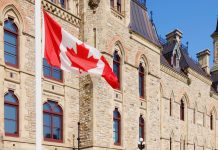Clint Repski, Deputy Minister of the Saskatchewan Ministry of Education, outlines the policy priorities for education in Saskatchewan, with a particular focus on literacy and funding
The Saskatchewan Ministry of Education is committed to student success and giving the people of our province access to supports and services.
Driven by Saskatchewan’s Growth Plan 2020-2030, the Ministry supports participation in the economy by helping develop a skilled labour force; building better communities and stronger families through improved education and training through all stages in life; and providing greater access to childcare and early learning.
Literacy in the education sector
Literacy is a foundational component of our education sector. Family literacy initiatives create bonds between children and their families that foster shared learning and improved literacy skills. The Saskatchewan Literacy Network and Family Literacy Hubs work collaboratively with early learning facilities, schools, libraries, and communities to provide family literacy programming services and support. In the past two years alone, over 200 different Saskatchewan communities were reached through Family Literacy Day initiatives.
Saskatchewan residents have demonstrated how much they value our effective library system, which includes more than 300 public libraries across the province. From 2019 to 2022, the number of new library cards issued in Saskatchewan annually increased by 7% to almost 45,000.
With their library card, Saskatchewan residents can access public libraries across the entire province, giving them access to traditional library materials as well as audiobooks and e-books. In addition to technology, the range of language books offered through the Ministry’s Provincial Library and Literacy Office’s multilingual collection has grown to over 30 different languages and more than 60,000 items, which is a recognition of changing community needs.
Literacy skills lay the foundation for children to succeed throughout their lives. Literacy is directly related to community engagement, volunteerism and employment and opens the door to empathy, imagination, creativity and critical thinking.
Commitment to funding for classroom supports
In the Government of Saskatchewan’s 2024-25 provincial budget, a record $3.3 billion was invested to support Prekindergarten to Grade 12 schools, early learning and childcare, libraries, and literacy. This includes the largest-ever increase of 8.8% to Saskatchewan schools.
Our government’s increased commitment to funding for classroom supports includes an investment in the Teacher Innovation and Support Fund pilot, which helps implement local, innovative ideas to enhance our classrooms in areas such as teacher wellness, school safety and student achievement.
The Government of Saskatchewan is also funding Specialized Support Classrooms, a pilot program to assist students who need targeted intervention in the short term while also reducing interruptions in the home classroom. This work is expected to provide examples of successful long-term solutions to targeted intervention methods and to increase teacher capacity to manage complex classrooms.
The 2024-25 Saskatchewan budget provides $408.7 million for early learning and childcare to support Saskatchewan families. Saskatchewan’s library system receives $11.6 million, with a further $1.1 million for funded literacy organizations.
The Provincial Education Plan explained
With an eye on long-term successful outcomes for our students, we have a Provincial Education Plan focused on supporting all Prekindergarten to Grade 12 students.
The plan was developed with direct involvement of the education sector, Indigenous organizations, post-secondary education institutions, and school community councils representing parents. This work focuses on the four key priorities of learning and assessment: Indigenous education, mental health and well-being, and student transitions. The collaborative effort and shared commitment to the Provincial Education Plan will support student success in our province.
Individuals who complete Grade 12 generally have more opportunities for education and work and experience better health and well-being. When more students graduate, Saskatchewan benefits from an educated and engaged population and the availability of skilled and knowledgeable entrepreneurs and employees.
A prosperous future of education in Saskatchewan
Empowering Saskatchewan’s early learners, students, and families is key to building a prosperous future for the next generation.











